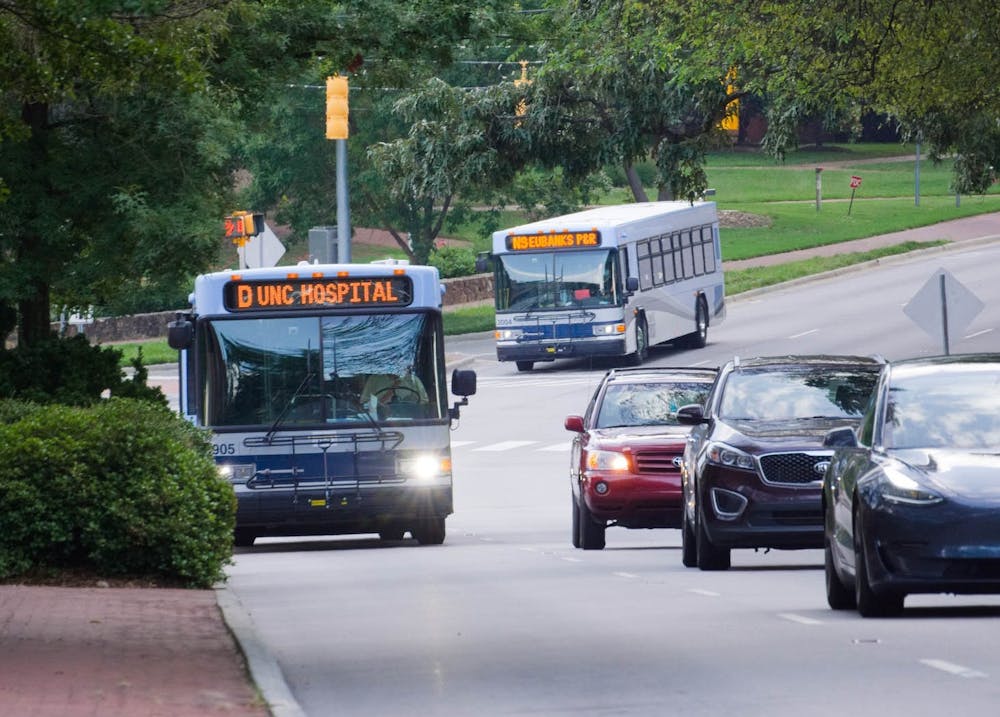U.S. Rep. David Price announced in early August that Chapel Hill Transit will receive $5.6 million as part of a federal grant for the purchase of zero-emission buses and other related transit network developments.
According to a press release, Price, who serves as chairperson of the Transportation, Housing and Urban Development subcommittee, approved the Town’s application for an increase in annual funding in support of Chapel Hill Transit.
"Chapel Hill Transit is a national leader when it comes to affordable, dependable public transportation that ensures people can conveniently connect to jobs, health care and educational opportunities,” Price said in the press release.
The $5.6 million, allocated by the Federal Transit Administration, will generate considerable expansion to the bus fleet — adding 10 zero-emission buses — helping reduce the transit network’s vehicle emissions.
However, Brian Litchfield, transit director for Chapel Hill, said over email the suspected timeline for these changes will not begin before the end of 2020. He said three zero-emission buses will be delivered in May of 2021.
“These buses will replace existing diesel buses, and we will test them throughout the system to see how they perform,” Litchfield said.
He said the new buses will take over existing routes as part of Chapel Hill Transit’s coverage area.
Michael Parker, a Chapel Hill Town Council member, approves of the move because he thinks the new buses will help reduce the ecological footprint of Chapel Hill.
Parker said he believes that testing and exploring these vehicles within Chapel Hill is the beginning of a longer process for the transit system to evolve into a highly sustainable one.



